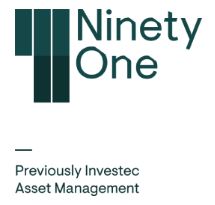Why COVID-19 may prompt a change of mindset for UK income investors.
Published: 9th July 2020
This site is for UK investment professionals only. If you're not an investment professional, please find out more about us at vitality.co.uk.
 The fast view
The fast view
- The current environment is an unprecedented one for UK income investors, with the coronavirus pandemic prompting a swathe of dividend reductions.
- A prudent approach to capital allocation is key to safeguarding businesses against ‘known’ headwinds, such as being a capital-intensive company in a cyclical sector.
- UK equities can still be seen as an attractive source of income. At Ninety One, we believe companies will adjust their capital allocation policies to focus on sustainable income growth, but it is imperative to remain selective.
- Our Quality approach to investing involves sourcing more resilient companies that are differentiated and can therefore make attractive and sustainable incremental returns.
Portfolio Manager of the VitalityInvest
Ninety One UK Equity Income Fund
An unprecedented environment
The severe headwinds to income have clearly been most acute in specific sectors, but as we start to reflect I do think we need to make an important distinction between bad luck (or the ‘unknowns’) and imprudence (or the ‘knowns’) when evaluating the income headwinds facing investors today. The pandemic is clearly an ‘unknown’ risk which has caught many, including us, by surprise. However, imprudent capital allocation is a ‘known’ risk and something that we can seek to guard our clients’ capital against.
Prudent capital allocation is key, whether big or small
Some of the biggest names in UK PLC have fallen victim to imprudent capital allocation policies. Stocks such as banking giant HSBC and oil major Royal Dutch Shell made up a substantial amount of the FTSE All-Share income last year. Yet both had pay-outs which, in our opinion, were unsustainable in the context of leveraged balance sheets, especially given they operate in both commoditised (price taking) and cyclical sectors. We believe the cuts to these dividends are more structural in nature and the forward pay-outs will therefore revert to more sustainable (lower) levels. For this reason, we are also realistic in our expectations that it could take many years for FTSE All-Share income to recover to 2019 levels.
What is the outlook for UK dividends from here?
A crucial question is whether UK equities can still be seen as a source of income investing? We believe the answer is certainly yes. It is worth remembering that over 70% of the revenue from the UK’s FTSE All-Share index is generated offshore, which can help alleviate challenges facing the domestic economy. In addition, companies should and will learn from their mistakes and adjust their capital allocation policies accordingly. However, as always, it is imperative to remain selective.
This selectivity can help a renewed focus on prudence becoming top-of-mind for UK investors. A change in mindset toward one that views sustainable dividend growth, supported by cashflow, as being more important than dividend yield, should lead to more attractive outcomes. Cash generative companies with sustainably high or improving returns on capital, and low capital intensity, are those most likely to grow their dividends and deliver attractive realised income and total returns.
 Our approach
Our approach
At Ninety One, we are fortunate to know where our hunting ground is. Our Quality team looks for those companies that are differentiated and therefore make attractive and sustainable incremental returns on capital, operate in largely defensive sectors and have a degree of pricing power. On the margin, we will invest in price taking, cyclical and the more capital-intensive areas but we try to ensure both a cost advantage and astute capital allocation are in place before committing capital.
Building a portfolio based on such a philosophy ensures quite a few resilient traits which we believe protects us from specific risks such as a pandemic, or even Brexit, which is another risk still worth acknowledging.
Specifically, the portfolio is:
- Diversified by geography with holdings such as Unilever, Diageo and Reckitt Benckiser at its core.
- Biased to business models with more subscription / maintenance revenues with holdings such as RELX, Sage, Kone and Smiths Group.
- Biased to defensive cash flow streams with holdings such as Convatec, GlaxoSmithKline and Coloplast.
- Opportunistic given the ‘change’ basket which allows us to take advantage of the more out of favour, sometimes cyclically depressed stocks such as Amadeus, 3i Group and Hargreaves Lansdown in recent months.
- Able to invest 20% offshore and thus leverage off the best ideas from our Global Income strategy with holdings such as Microsoft and Charles Schwab.
Crucially, it is important to stress that conducting a thorough valuation of an investment is paramount: we set out to protect client capital before we grow it and not overpaying for stocks is a critical element to this process. We are also very patient investors, and do not search for immediate gratification, which has served us well historically and into the recent drawdown. We try to guard against all thinkable risks in the best possible way and even though the pandemic was an ‘unknown’ risk we do believe this prudent approach has helped. If this means we forego some upside return in the good times by largely avoiding the more operationally and financially levered stocks then we are willing to make that trade off.
Important information
General risks.
The value of investments, and any income generated from them, can fall as well as rise. Past performance is not a reliable indicator of future results.
Specific risks.
Currency exchange: Changes in the relative values of different currencies may adversely affect the value of investments and any related income. Emerging market (inc, China): These markets carry a higher risk of financial loss than more developed markets as they may have less developed legal, political, economic or other systems.
VitalityInvest is a trading name of Vitality Corporate Services Limited. Vitality Corporate Services Limited is authorised and regulated by the Financial Conduct Authority. 09/07/2020 | This article’s view is based on the law, practices and conditions as at the day of publication. While we have made every effort to ensure they are accurate, we accept no responsibility for our interpretation or any future changes. | VI W 0230
Where to next?
-
How macro dynamics are shaping the invest future
An expert panel discusses current market conditions and reviews the macro, global dynamics that are shaping the future investment environment.
-
Income investor challenges in a COVID-19 world
John Stopford shares his views on the challenges and opportunities facing income investors as a number of companies cut, cancel or suspend dividends.
-
Insights Hub
Our Insights Hub brings you our range of adviser content - from video series to articles & blogs.


